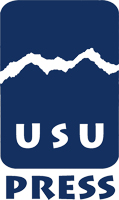
All USU Press Publications
Files
Download Full Text (944 KB)
Abstract
Despite its centrality to much of contemporary personal and public discourse, sexuality remains infrequently discussed in composition courses and in our discipline at large. Moreover, its complicated relationship to discourse, to the very language we use to describe and define our worlds, is woefully understudied in our discipline. Talk and writing about sexuality surround us. Not only does the discourse of sexuality surround us, but sexuality itself forms a core set of complex discourses through which we approach, make sense of, and construct a variety of meanings, politics, and identities. In Literacy, Sexuality, Pedagogy, Jonathan Alexander argues for the development of students' "sexual literacy." Such a literacy is not concerned with developing fluency with sexuality as a "hot" topic, but with understanding the connectedness of sexuality and literacy in Western culture. Using the work of scholars in queer theory, sexuality studies, and the New Literacy Studies, Alexander unpacks what he sees as a crucial--if often overlooked--dimension of literacy: the fundamental ways in which sexuality has become a key component of contemporary literate practice, of the stories we tell about ourselves, our communities, and our political investments. Alexander then demonstrates through a series of composition exercises and writing assignments how we might develop students' understanding of sexual literacy. Examining discourses of gender, heterosexuality, and marriage allows students (and instructors) a critical opportunity to see how the languages we use to describe ourselves and our communities are saturated with ideologies of sexuality. Understanding how sexuality is constructed and deployed as a way to "make meaning" in our culture gives us a critical tool both to understand some of the fundamental ways in which we know ourselves and to challenge some of the norms that govern our lives. In the process, we become more fluent with the stories that we tell about ourselves and we discover how normative notions of sexuality enable (and constrain) narrations of identity, culture, and politics. We develop not only our understanding of sexuality, but of our literacy, as we explore how sexuality is a vital, if vexing, part of the story of who we are.
Document Type
Book
Publisher
Utah State University Press
Publication Date
2008
ISBN
978-0-87421-701-8
City
Logan
Recommended Citation
Alexander, Jonathan, "Literacy, Sexuality, Pedagogy: Theory and Practice for Composition Studies" (2008). All USU Press Publications. 25.
https://digitalcommons.usu.edu/usupress_pubs/25

Included in
English Language and Literature Commons, Feminist, Gender, and Sexuality Studies Commons


Comments
Available as ebook or hard copy from USU Press.